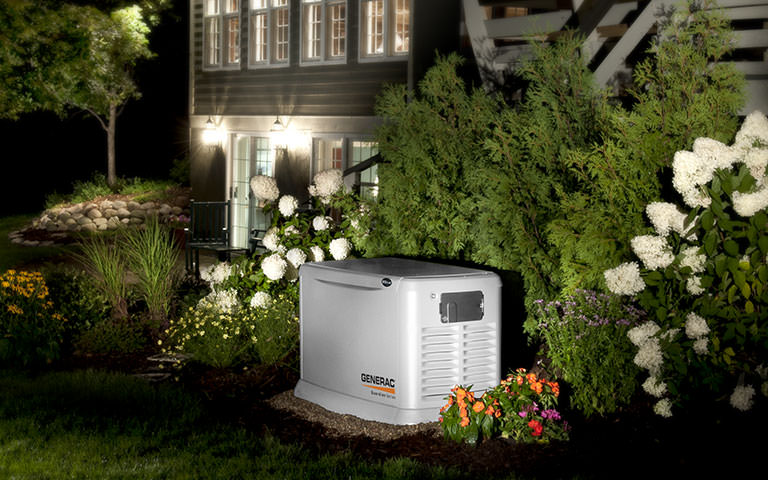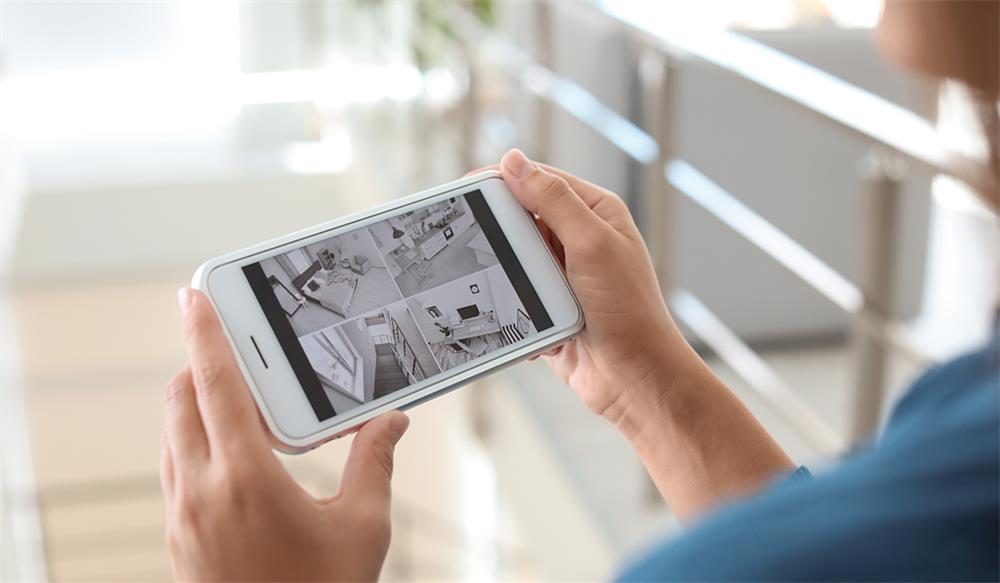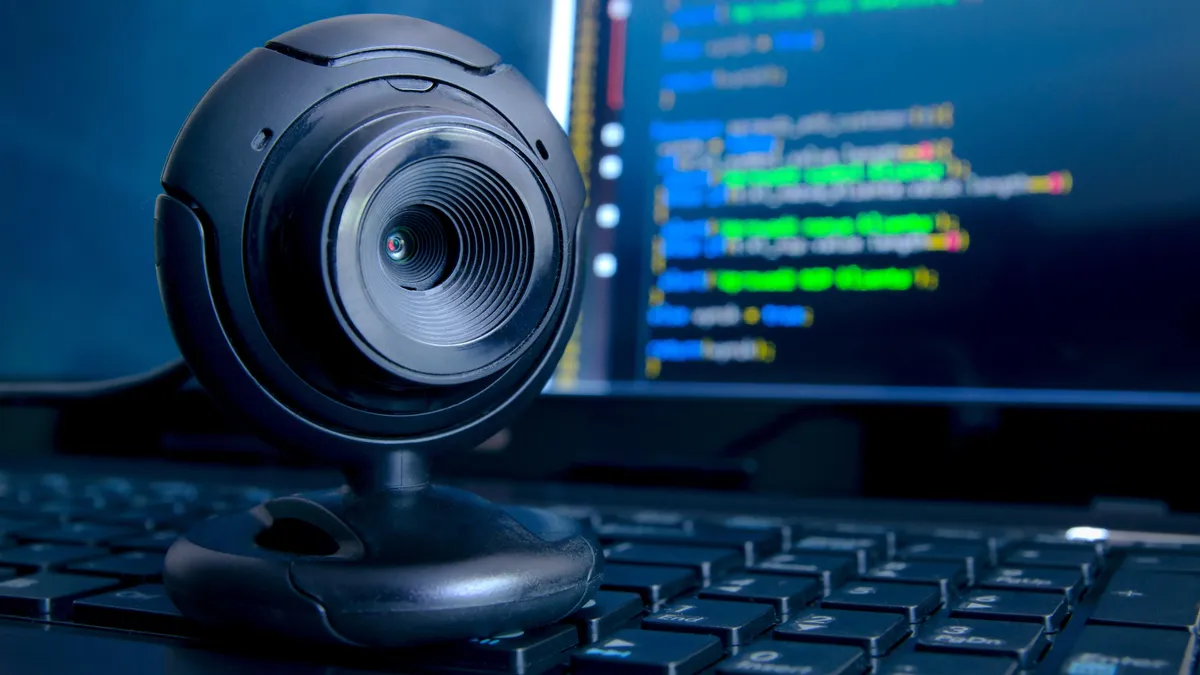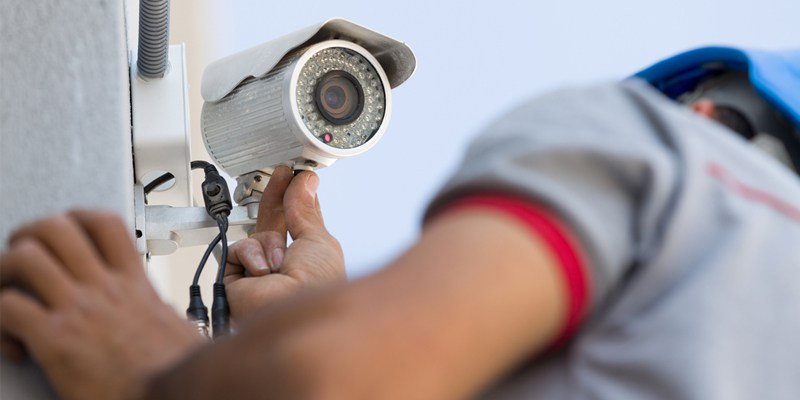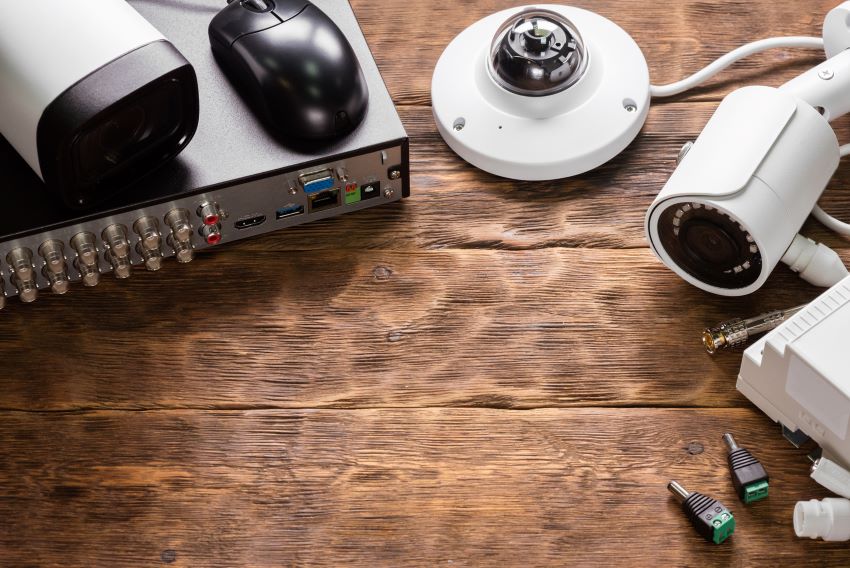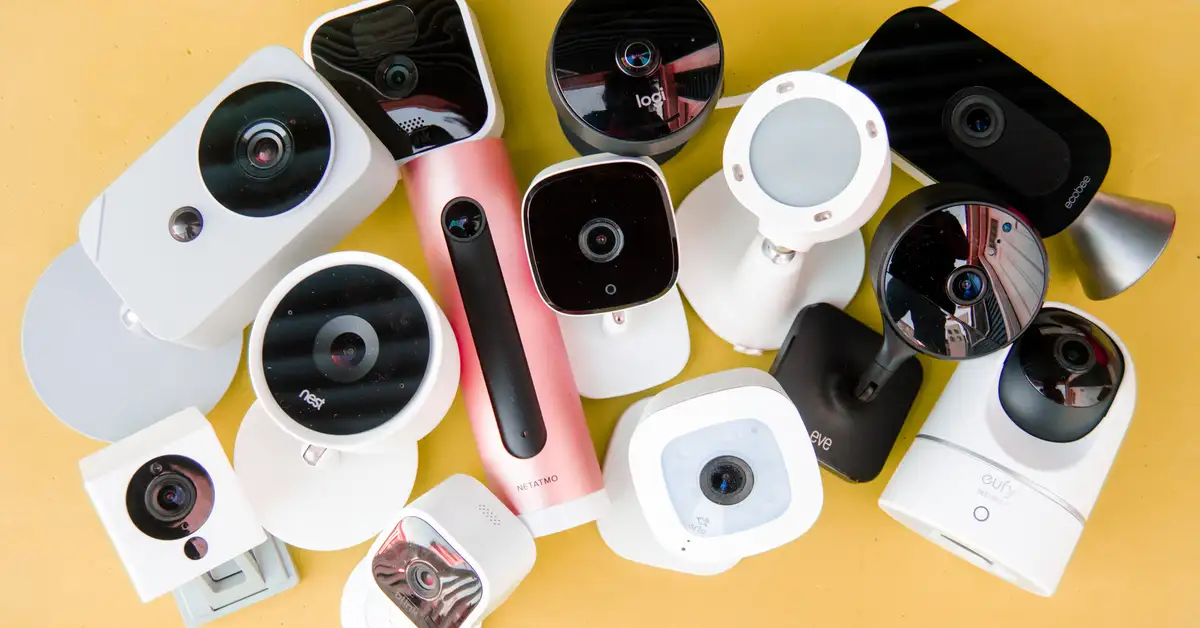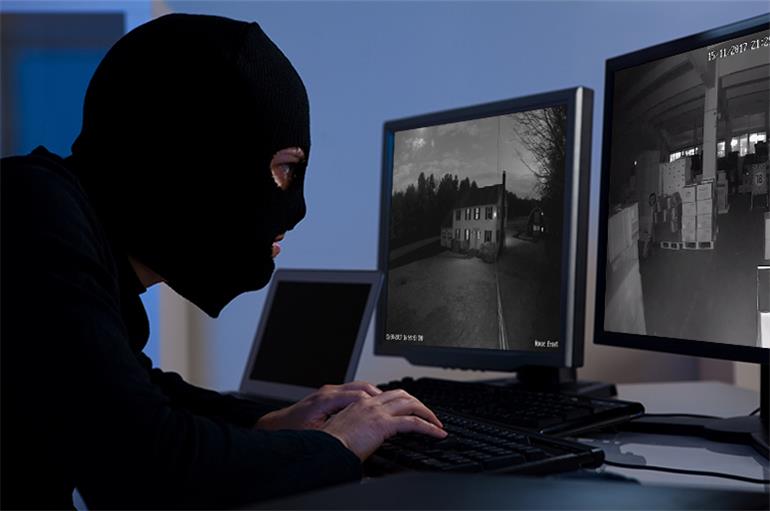Contents
The Importance of Backup Power for Your Security System
The Importance of Security Systems
Security systems are designed to protect people and property from potential threats. These threats could come in many forms, such as theft, vandalism or even physical harm. Security systems provide a sense of safety and security, allowing people to go about their daily lives without fear.
The use of security systems has become increasingly common in recent years due to advancements in technology that have made these systems more affordable and easier to install. In fact, it is estimated that over 40% of American homes have some type of security system installed.
Given the importance of these systems, it is crucial that they are always operational and functioning properly. However, power outages can compromise the functionality of security systems, which is where backup power comes into play.
The Importance of Backup Power for Security Systems
Power outages can occur for a variety of reasons such as natural disasters or simply due to technical issues with the power grid. When a power outage occurs, security systems that rely on electricity will stop functioning immediately.
This leaves your home or business vulnerable to attacks or theft during the outage. Backup power sources are designed to ensure continuous surveillance even during power outages.
They act as a secondary source of electricity when the primary source fails. This allows your security system to continue operating without interruption until power is restored.
Without backup power sources in place, your home or business could be left unprotected during an extended power outage. This can result in not only financial losses but also emotional trauma from dealing with the aftermath.
In short, backup power sources are key components in ensuring reliable and uninterrupted surveillance through your security system all year round – especially during unexpected emergencies like blackouts or inclement weather conditions. With backup powers installed you can sleep soundly knowing that you’re always protected no matter what happens!
Power Outages and Security Systems
How power outages can compromise security systems
Power outages can be a nightmare for your security system. Without power, the system will be unable to function, leaving you vulnerable to theft or burglary. Depending on the severity of the outage and the battery life of your components, your security system could be down for hours or even days.
One of the most critical components when it comes to power outages is your surveillance cameras. If they are not connected to a backup power source, they will shut down shortly after there is a power outage.
This means that if someone breaks into your home while you are away during a blackout, there will be no record of who did it. Another component that is affected by power outages is alarm systems.
Because alarms require electricity to operate, they will not function when there is no power. This renders them completely useless at deterring burglars from entering and alerting authorities in case an intrusion occurs.
The need for backup power to ensure continuous surveillance
To ensure that your security system operates continuously without any interruptions in coverage or operation due to a loss of electricity, installing backup power sources is necessary. Backup generators and uninterruptible power supplies (UPS) provide continuous electrical supply during times when normal electrical supply fails. Backup generators automatically turn on once grid electricity goes out and keep running until electricity comes back on again or all fuel in their tanks has been used up.
On the other hand, UPS systems provide energy stored in batteries which keep devices running until generator turns on but only last for short periods usually minutes up to hours depending on how much load they’re supporting. Having some sort of backup generator or UPS system installed ensures that your surveillance cameras are always operational during blackouts and other unforeseen circumstances like brownouts etc., which helps reduce instances where break-ins go unnoticed due to a lack of electricity.
Anyone who has installed or is planning to install a security system in their homes or businesses must give serious thought to the backup power source. Power outages can happen at any time and without warning, and can have devastating consequences if your security system is not backed up with an adequate power source.
Types of Backup Power Sources
When it comes to backup power sources for your security system, there are a few different options available. Each has its own advantages and disadvantages, so it’s important to choose the one that’s best suited to your needs.
Generators
Generators are perhaps the most commonly used backup power source for security systems. They come in a range of sizes, from small portable units that can be used to power just a few devices, to large whole-house units that can keep your entire home running during an outage.
The biggest advantage of generators is that they offer a lot of flexibility. You can choose the size and type of generator that best meets your needs.
They’re also relatively easy to use – you simply need to start them up when the power goes out and plug in your devices. However, generators do have some downsides.
They can be expensive and require regular maintenance. They also need fuel (usually gasoline or propane) to run, which means you’ll need to store enough fuel on hand for extended outages.
Uninterruptible Power Supply (UPS)
If you don’t need as much power as a generator provides or if you want something that requires less maintenance, an uninterruptible power supply (UPS) might be a good option. A UPS is essentially a battery backup system that sits between your devices and the main power supply. When the main power supply goes out, the UPS kicks in, providing temporary power until either the main supply comes back on or you’re able to switch over to another backup source like a generator.
The biggest advantage of UPS systems is their low-maintenance requirements. Unlike generators, they don’t need fuel or regular maintenance checks – just periodic battery replacements every few years.
However, UPS systems are limited in terms of the amount of power they can provide. They’re typically only able to power a few devices for a short period of time, so they’re not ideal for extended outages or situations where you need to keep a large number of devices powered.
Solar Panels
Solar panels are another backup power source option that’s becoming increasingly popular. They work by converting sunlight into energy using photovoltaic cells, which can then be stored in batteries and used to power your security system (or other devices) during an outage. The biggest advantage of solar panels is that they’re completely self-sufficient – as long as the sun is shining, you’ll have power.
They’re also environmentally friendly and require very little maintenance once installed. However, solar panels do have some drawbacks.
They can be expensive to purchase and install initially, and they may not produce enough energy to meet all your needs during extended outages or periods with low sunlight levels. Additionally, since they rely on sunlight, you may need to supplement them with another backup source like a generator or UPS if you live in an area with frequent overcast weather or long periods without sun.
Choosing the Right Backup Power Source
When it comes to choosing the right backup power source for your security system, there are several factors to consider:
- The size and power requirements of your security system
- Your budget
- Your level of technical expertise (some systems may be more complex than others)
- The likelihood and duration of outages in your area
- Your environmental concerns (e.g. if you want something that’s eco-friendly)
Once you’ve considered these factors and weighed the pros and cons of each backup power source option, you’ll be better equipped to make an informed decision that meets your needs and keeps your home safe and secure during power outages.
Choosing the Right Backup Power Source
Factors to Consider when Choosing a Backup Power Source
When selecting a backup power source for your security system, there are several factors to consider. First, you need an option that will be reliable and ensure that your system stays operational even during a power outage.
You don’t want to invest in backup power only for it to fail when you need it most. Secondly, consider the type of security system you have.
Some systems may require more power than others, so it’s essential to pick a backup power source that can handle the demands of your system. Another factor to take into account is portability.
Will you need a backup generator or UPS that can be easily transported in case of an emergency? If so, look for options that are lightweight and easy to move.
Think about the environmental impact of the backup power source you choose. Solar panels may be an excellent option because they use clean energy and don’t emit harmful fumes like generators do.
Cost Considerations
Cost is another critical factor when selecting a backup power source. Generators tend to be more expensive compared to UPS or solar panels. However, generators provide more extended periods of power supply compared with other options.
On the other hand, solar panels may require significant upfront costs but could save money in the long run by reducing electricity bills. They also require minimal maintenance compared with generators and UPS systems.
UPS systems are budget-friendly options suitable for small security systems with low energy requirements. They offer temporary relief during short-lived outages but may not last very long during extended blackouts.
When considering cost, also keep in mind any additional expenses such as installation fees or routine maintenance costs required by some types of backup sources. Choosing the right backup power source requires careful consideration of various factors such as reliability, portability, environmental impact, and cost.
Conduct thorough research and evaluate your security system’s power requirements before making a decision. Remember to factor in the long-term costs of maintenance and repairs to ensure that you get the most out of your investment.
Maintenance and Testing
Importance of Regular Maintenance and Testing of Backup Power Sources
If you’re thinking about installing backup power sources for your security system, it’s essential to understand the importance of regular maintenance and testing. Like any other electronic device, power generators, UPS or solar panels need to be maintained properly to ensure their functionality during power outages. Regular maintenance and testing procedures can help detect potential malfunctions or issues with your backup power source before they become serious problems.
Regular maintenance also ensures that the system is functioning correctly when it is needed, giving you peace of mind that your security system will keep working in case of a blackout. Backup power sources are designed to kick in automatically if there is a power outage.
However, this may not always be the case if regular maintenance is not conducted. For example, a generator’s battery may have lost its charge or the fuel lines may have clogged without notice.
If this happens during an outage, your backup generator will not start up when needed. By conducting regular scheduled maintenance checks on your backup generator or UPS uninterrupted power supply system, you can avoid unexpected surprises when there’s an emergency situation like a blackout.
Tips for Maintaining and Testing Your Backup Power Source
There are some simple steps you can take to maintain your backup power source effectively:
1. Check batteries regularly: Batteries are an essential part of any backup power source system.
They should be checked regularly and replaced as needed.
2. Keep Your Fuel Tank Topped Up: If you’re using a generator as a backup source – ensure that it has plenty of fuel at all times especially during long-term blackouts
3. Test Your System Regularly: To ensure maximum reliability from your backup systems – test them often! Schedule monthly tests for each device connected to your security system.
4. Follow Manufacturer Guidelines: Ensure that you read and follow the manufacturer’s instructions regarding maintenance and testing. This is to ensure the maximum lifespan of your backup power source.
5. Hire a Professional Service Technician: If you’re not comfortable with performing regular maintenance on your own or if repairs are required, hire a professional service technician to maintain your backup power source systems. A backup power source for your security system is an essential component of an effective home security system.
Regular maintenance and testing can help ensure its reliability during times of crisis. By following manufacturer guidelines, scheduling regular check-ups and engaging professional support when required; you can keep your home safe without worrying about unexpected incidents during blackouts!
Conclusion
Backup Power is a Necessity for Security Systems
Reliable backup power is not an option but a necessity for your security system. Power outages happen when we least expect them, and they can expose your property or assets to potential threats. With backup power, you can rest assured that your security system will remain operational even in the event of a power outage.
Making the Right Choice
Choosing the right backup power source may seem like an overwhelming task, but it is crucial to ensure it meets your needs and budget. While generators are reliable sources of backup power, they may not be suitable for everyone. Uninterruptible Power Supplies (UPS) are also reliable sources of backup power but may be more expensive than generators.
Solar panels are excellent alternatives that offer green and renewable energy options. Understanding your needs and the pros and cons of each option will help you make an informed decision.
Maintenance is Key
Proper maintenance of your backup power source ensures its reliability when needed most. You want to make sure that all components are working correctly through regular testing and maintenance routines as needed. Doing so will give you peace of mind knowing that when emergencies arise, you have taken measures to keep yourself safe.
The Importance of Testing
Testing ensures that all systems work appropriately during a real emergency before it happens. It’s important to know how long your battery backups will last, how much fuel or gas they consume per hour if running on generator mode, etc., so testing should be conducted regularly.
Conclusion: Secure Your Properties with Reliable Backup Power Sources
Having adequate backup power sources for our security systems is essential in today’s world where emergency situations occur frequently – natural disasters such as hurricanes or storms can leave us without electricity for days at a time. A reliable backup power source will help ensure that you are never left unprotected or vulnerable to potential threats. By considering your options carefully, performing regular maintenance, and testing it, you can have peace of mind knowing that your property is always protected regardless of the situation.

